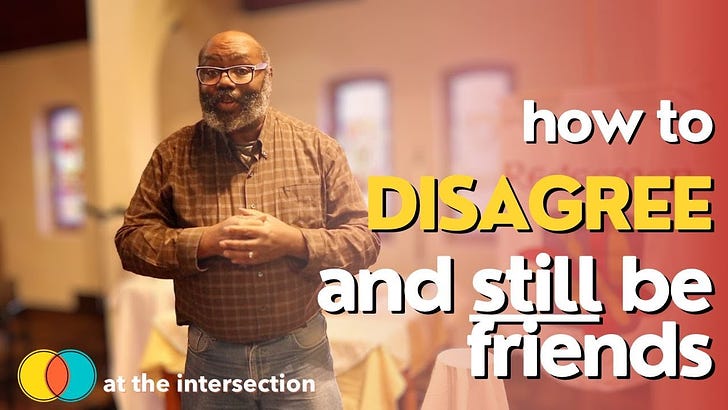About eight years ago, there was one of those stories that was on social media for a hot minute and then quickly forgotten. It involved an employee of the United Methodist Church holding up a sign during the annual March for Life in 2015. Bill Mefford who was the Director of Civil and Human Rights in the United Methodist Church, held up a sign during the march where he proclaimed “I March for Sandwiches.”
Mefford decided to post a picture of him holding the sign to Twitter which he probably regretted soon after. The post went viral and caused a bit of controversy. Mefford apologized, but he received a response on his blog that was interesting:
Bill, thanks for your apology. I’m all for humor, but next time you should remember the golden rule. Ask yourself this: how would you have responded if the marchers in Ferguson or New York this past fall had been met with mockery? I suspect you would not have appreciated it. Even if one disagreed with them, the seriousness of the situation demanded respect. Same with the March for Life.
I think Mefford’s stunt was a showing of a lack of civility. You didn’t have to agree with the pro-life marchers, but they could have been treated with a modicum of respect.
As silly and disrespectful as Mefford’s sign was, I don’t think there was a sense of contempt coming from him. But the following years have coarsened our hearts and we have become hard of heart towards those with which we disagree.
This past week, I recorded another one of my At the Intersection videos. In this one, I start by talking about Congresswoman Marjorie Taylor Greene’s call for a “national divorce,” and then share a story from the early 1990s regarding two women who differed on one of the most important issues of the day: homosexuality. The video is based on a longer essay I wrote a few years ago about how we are losing the ability to respect each other.
America in 2023 seems to be a place where we don’t like each other. Actually, we kind of hate each other, especially if you aren’t part of the right political tribe. I’ve talked and talked about the recent shootings where people were at the wrong place at the wrong time.
I think part of the problem now is that we know that we are on the right side. We try to justify ourselves by telling ourselves we are on the side of the angels while those people are on the side of the devil. We are the righteous, they are the sinners.
Sharon Watkins, the former General Minister and President of my denomination, the Christian Church (Disciple of Christ), once talked about staying that the communion table with people you don’t agree with. She talked about this as the denomination was getting ready to debate and vote on a resolution welcoming LGBTQ Christians in the full life of the church. Now trying to maintain a relationship with people you don’t see eye to eye is a challenge. I could see it as a challenge for me as someone who is openly gay. But it’s staying at God’s table that allows us to see each other and it allows God to work in us and through us. Maybe by staying at the table the frayed bonds of society can be reknit and made who again.
Every Sunday, we gather around a communion table. That table is a powerful symbol in Disciples theology. It is a place where God calls everyone, no matter their ideology, their race, or their ethnicity. The table calls us all and that is important these days when we are so fractured and so tempted to create a place where everyone believes the same things.
Alexander Campbell, one of the founders of the Stone-Campbell movement where the Disciples draw their heritage, wrote a poem that was later set to music about the act of communion and how it brings people together. What is wonderful about that hymn is how it reminds us that we are all sinners that are in need of grace and forbearance:
You My Friend, A Stranger Once,
Do Now Belong To Heaven.
Once Far Away, You Are Brought Home
Into God’s Family.
“When You Do This, Remember Me.”Now My Lord Is Also Yours,
My People Are Your Own;
Embraced Together In God’s Arms,
I Enfold You Now In Mine.
“When You Do This, Remember Me.”
Can we take the image of the communion table and make it a part of our lives not just in church, but every day?
I wonder what Mr. Mefford is doing these days. I hope that he is finding ways to bring us all together, maybe by coming together at God’s Table.



